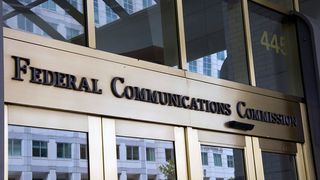Hero Licensco Withdraws KBEH Deal From FCC

Hero Licensco, the owner of TV station KBEH, has rescinded its request that the FCC allow it to sell its license and must-carry rights.
That is according to a filing with the FCC dated May 31.
The FCC put the proposed assignment of license out for comment on the larger issue of whether a station that was paid to give up spectrum but was allowed to retain its license and must-carry rights and strike a deal to share spectrum with another station could instead sell those rights to a third party, as Hero proposed to do.
In a one-page, two-line filing, law firm Fletcher, Heald & Hildreth said it "respectfully requests withdrawal of the above-referenced assignment application for television station KBEH(DT) Oxnard, Calif."
That came only a day after WGBH joined with others to weigh in with the FCC on the need for the FCC to allow the transfer of licenses and must-carry rights of winning bidders as a matter of course, so long as the deal meets the public interest test for all license transfers.
Hero, which got $146.6 million for the 6 MHz worth of spectrum used by KBEH, is a Spanish-language independent. Hero indicated to the FCC at the time of the auction it would strike a sharing agreement (with KWHY) if it won, though that was not binding.
It then filed an application to sell its remaining assets, including the license and the must-carry rights that the FCC said would go along with it after the auction, to KWHY owners Meruelo Television. But just in case the sale did not go through, at the same time both it and Meruelo filed applications to share KWHY's channel and a local marketing agreement (LMA) that would allow Meruelo to program KBEH.
Broadcasting & Cable Newsletter
The smarter way to stay on top of broadcasting and cable industry. Sign up below
The FCC subsequently put the deal out for comment on the larger issue of transferability of the license of a station that had given up its spectrum in the auction.
If the FCC approves the sale of a spectrumless station, it could trigger similar sales by stations that initially signaled they’d stay in the business, which was virtually all broadcasters that sold spectrum in the auction.
WGBH and others said this week that the FCC needed to make a decision because some deals had tanked waiting to find out the status of some potential transfers. (Hero was not a part of the WGBH et a. filing, as the story initially reported. We regret the error).
Contributing editor John Eggerton has been an editor and/or writer on media regulation, legislation and policy for over four decades, including covering the FCC, FTC, Congress, the major media trade associations, and the federal courts. In addition to Multichannel News and Broadcasting + Cable, his work has appeared in Radio World, TV Technology, TV Fax, This Week in Consumer Electronics, Variety and the Encyclopedia Britannica.

